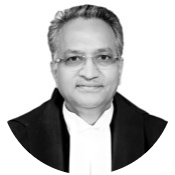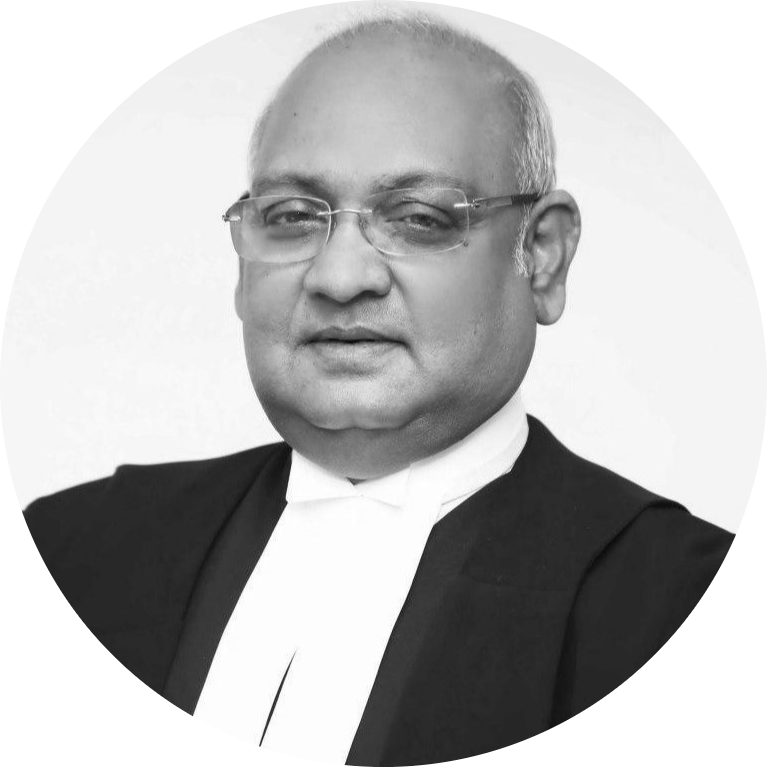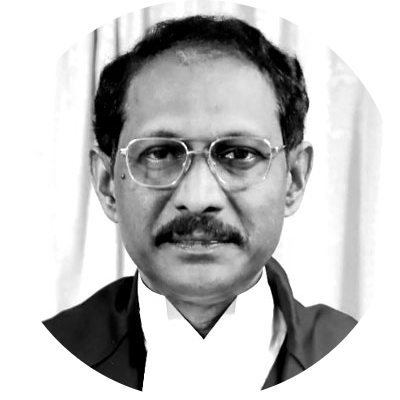Challenges to the Prevention of Money Laundering Act
Vijay Madanlal Choudhary v Union of India
The Supreme Court upheld the wide investigative powers of the Directorate of Enforcement and the restrictive bail conditions under the Prevention of Money Laundering Act, 2002.
Decided
Parties
Petitioner: Vijay Madanlal Choudhary
Lawyers:
Respondent: Union of India
Lawyers:
Case Details
Case Number: SLP (Crl) No. 4634/2014
Next Hearing:
Last Updated: August 29, 2022
Key Issues
Is it necessary to obtain a magistrate’s permission before making arrests under the PMLA?
Do the rules of investigation applicable to police agencies under the Criminal Procedure Code 1973 apply to the enforcement directorate under the PMLA?
Is the 2018 amendment to the bail conditions under the PMLA constitutional? Does it undermine the judgment in Nikesh Tarachand (2017)?
Does the Nikesh Tarachand judgment lay down the correct proposition of law on bail conditions?
Are the accused person’s fundamental rights violated by the burden of proof placed on them by PMLA?
Is the amendment to Section 3 of the PMLA a permissible expansion of the meaning of ‘offence’ under the Act?Is money laundering a standalone offence? Is a complaint about a predicate offence required to arrest under PMLA?
Is money laundering a standalone offence? Is a complaint about a predicate offence required to arrest under PMLA?
Does the ability to use statements of the accused recorded by the Enforcement Directorate during judicial proceedings violate the right against self-incrimination?
Can the PMLA be applied to acts which occurred prior to the addition of the offence under the Act?
Are the amendments to the rules of search and seizure under PMLA unconstitutional?
Is the power of arrest granted to special investigation agencies unconstitutional?
Can a Court bar the ED from taking ‘coercive steps’ in all cases under the PMLA only because the constitutional validity of certain provisions have been challenged?
Do provisions concerning attachment of property under PMLA violate the right to property under article 300A?
Case Description
The Directorate of Enforcement (ED) is a financial investigation agency under the Union Government’s Department of Revenue, responsible for enforcing the provisions of the Prevention of Money Laundering Act, 2002 (PMLA). To conduct investigations, the ED is empowered to issue summons, record statements, make arrests, and search and seize property.
Despite having powers of investigation, the ED has not been classified as a ‘police agency’. This is also true for other specialised bodies, including the Serious Fraud Investigation Office (SFIO) and the Directorate of Revenue Intelligence (DRI), which are empowered to investigate economic offences under other legislations. These bodies are not obliged to follow the Code of Criminal Procedure Code, 1973 (CrPC).
Nearly 200 petitioners challenged the powers of these specialised investigation agencies that deal with economic offences. The earliest petitions were pending since 2014. More than 80 of these petitions dealt with the PMLA. These included petitions filed by several politicians accused of money laundering, such as Lok Sabha Member Karti Chidambaram, former Punjab MP Sarwan Singh Phillaur and former Jammu and Kashmir CM Mehbooba Mufti.
The following provisions of the PMLA were challenged before the Court:
Sections 5 and 8(4) which grants the ED wide discretionary powers to attach the property of the accused—challenged as arbitrary for violating safeguards meant to protect the accused.
Section 17 which grants the ED wide powers to enter and search suspected property without judicial permission. Along with Section 19 which grants the power of arrest to the ED, and Section 24 which presumes guilt of the accused until it is disproved, these provisions were challenged for exempting the ED from following the rules of criminal procedure.
Section 45 of the Act which takes away the presumption of innocence usually afforded to accused persons under criminal law. To be granted bail, the accused must prove prima facie that they were not guilty, and satisfy the Court that they will not commit any further offence. These ‘twin bail conditions’ under PMLA are central to this case. Interestingly, the SC declared this provision unconstitutional in Nikesh Tarachand Shah v Union of India (2017). The Union government then amended the provision in 2018. The ED claimed that this amendment brought the provision in line with Nikesh Tarachand Shah. The petitioners argued that the amendment undermined the Judgment, and re-established the original twin conditions.
Section 50 allows the ED to compel accused to make self-incriminating statements under threat of a fine, was challenged for violating the fundamental rights of the accused under Article 20 of the Constitution. The petitioners contended that the investigation agencies effectively exercise police powers and should be obligated to follow the CrPC while conducting investigations. Crucially, since the ED is not a police agency, statements made by the accused to ED members in the course of an investigation can be used against the accused in judicial proceedings.
On July 27th 2022, a 3-Judge Bench comprising Justices A.M. Khanwilkar, Dinesh Maheshwari, C.T. Ravikumar upheld all the challenged provisions of the Prevention of Money Laundering Act, 2002.










